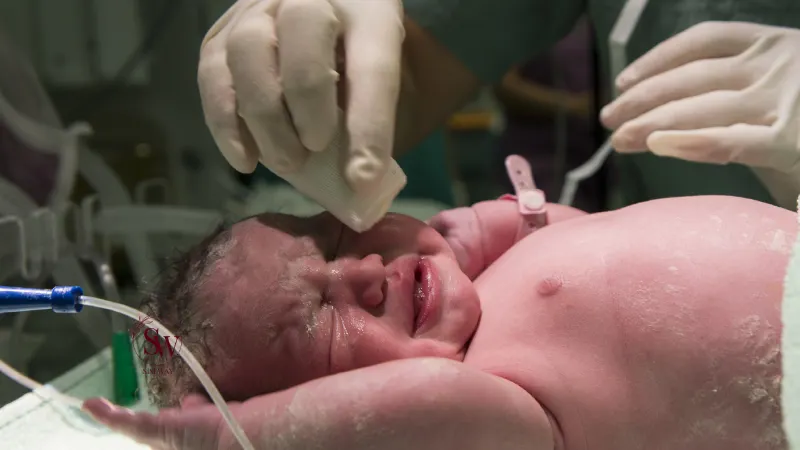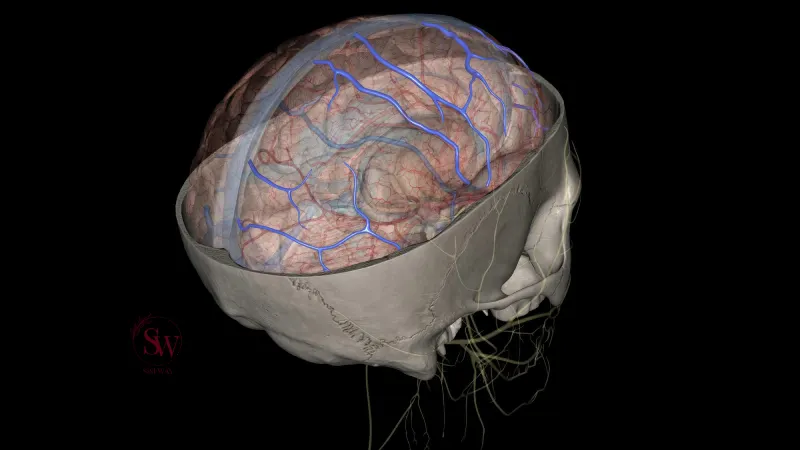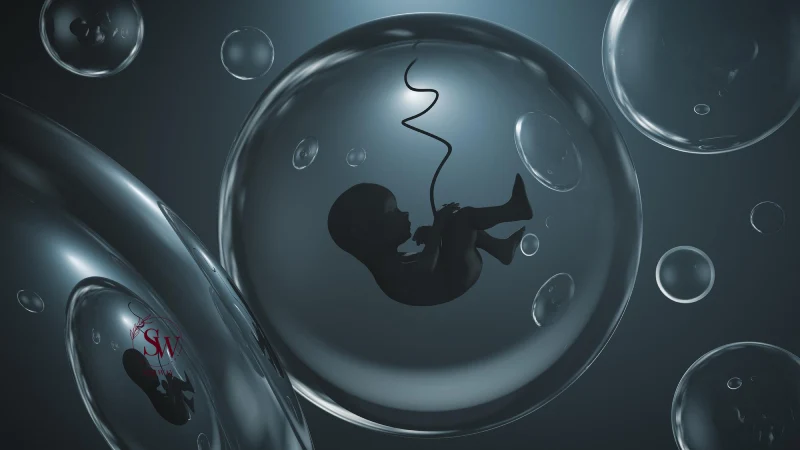
Are C Section Babies Smarter?
There is a common belief that babies born via cesarean section (C-section) are more intelligent than those delivered vaginally. This notion has gained traction due to various factors, including misconceptions and limited understanding of the impact of birth methods on a child’s cognitive abilities. In this article of sisiway, we will explore the topic and shed light on the scientific evidence behind the intelligence of cesarean babies.

Understanding Intelligence:
Understanding intelligence is a complex endeavor that encompasses a range of cognitive abilities and skills. Intelligence refers to the capacity for learning, problem-solving, reasoning, and adapting to new situations. It involves various dimensions, including logical-mathematical reasoning, linguistic abilities, spatial awareness, memory, emotional intelligence, and social skills. Intelligence is influenced by a combination of genetic factors, environmental influences, socio-cultural factors, and individual experiences. It is important to recognize that intelligence is not a fixed trait but can be nurtured and developed throughout life through education, exposure to diverse experiences, and continuous intellectual stimulation.
Also read: Superfoods for Brain Power
The Birth Process and Intelligence:
The birth process is a remarkable journey that brings new life into the world, and it has long been a subject of fascination and study. One intriguing question that arises is whether the mode of delivery, such as vaginal birth or cesarean section, has any impact on a child’s intelligence. Understanding the potential relationship between the birth process and intelligence is essential for expectant parents and healthcare professionals alike. In this article, we will delve into the topic, examining scientific research and shedding light on the complex interplay between the birth process and the development of a child’s cognitive abilities. By exploring the fascinating realm of brain development, genetic factors, and environmental influences, we aim to gain a deeper understanding of how the birth process may contribute to a child’s intelligence.
Also read: Can Dancing Cause Miscarriage?
-
Brain Development:
Brain development is a remarkable process that begins in the womb and continues throughout a person’s life. During pregnancy, the brain undergoes rapid growth and complex structural changes, forming billions of neurons and intricate neural connections. Early experiences and environmental factors play a crucial role in shaping the developing brain, with critical periods of heightened plasticity and sensitivity to stimulation. Proper nutrition, sensory stimulation, responsive caregiving, and a nurturing environment all contribute to optimal brain development. This intricate process lays the foundation for a person’s cognitive abilities, emotional regulation, social skills, and overall well-being, highlighting the importance of providing a supportive environment that fosters healthy brain development from the earliest stages of life.

-
Genetic Factors:
Genetic factors are a fundamental component in shaping an individual’s traits, including their physical characteristics, health predispositions, and, to some extent, cognitive abilities. Genes, which are segments of DNA, contain the instructions that determine the development and functioning of various biological processes in the body, including brain development. While the environment plays a significant role in influencing gene expression, genetic factors establish a baseline for an individual’s potential intelligence. Inherited genetic variations can influence aspects such as memory, problem-solving skills, and learning abilities, contributing to the unique cognitive profile of each person. However, it’s important to note that intelligence is a complex trait influenced by multiple genetic and environmental factors, and the interplay between these factors is still a subject of ongoing research.

-
Environmental Factors:
Environmental factors encompass the external influences that shape an individual’s development and can have a profound impact on various aspects of life, including intelligence. The quality of the physical environment, such as access to nutritious food, clean air, and a safe living environment, plays a role in supporting optimal brain development. Additionally, the social and cultural environment, including the level of stimulation, educational opportunities, and the quality of caregiving, significantly influences cognitive growth. Positive and nurturing interactions, exposure to diverse experiences, and access to quality education can enhance intellectual development. Conversely, adverse environmental conditions, such as neglect, trauma, or limited educational resources, can impede cognitive development. Recognizing and providing a supportive and enriching environment is essential for fostering optimal intellectual growth in individuals.
-
Oxygenation and Brain Health:
The birth process, particularly vaginal birth, involves the passage through the birth canal, which can exert beneficial mechanical forces on the baby’s skull and body. These forces, known as the “squeezing” or “molding” effect, facilitate the compression and release of the baby’s head, helping to expel amniotic fluid and potentially aiding in the clearance of lung fluid. Additionally, the contractions during labor can help stimulate the baby’s respiratory system, initiating the first breaths and promoting the oxygenation of the brain. Sufficient oxygen supply to the developing brain is crucial for optimal brain function and the establishment of neural connections, which are essential for cognitive development.

-
Hormonal Influences:
The birth process triggers a cascade of hormonal changes in both the mother and the baby. Hormones such as oxytocin, adrenaline, and cortisol are released during labor and delivery. These hormones not only facilitate the progress of labor but also play a vital role in the bonding between mother and child. The release of oxytocin, often referred to as the “love hormone,” promotes feelings of attachment and nurturance, which can contribute to a secure emotional bond between the mother and the baby. This emotional connection, in turn, provides a supportive environment for the baby’s overall development, including their cognitive abilities. The hormonal influences during the birth process can have long-lasting effects on a child’s emotional well-being and social cognition, factors that are intimately tied to intelligence.
Scientific Studies:
Scientific studies have played a pivotal role in understanding the complex relationship between various factors and intelligence. Numerous research investigations have explored the influence of genetic, environmental, and social factors on cognitive abilities. These studies consistently emphasize the multifaceted nature of intelligence and highlight the interplay between genetic predispositions and environmental influences. They have debunked myths surrounding the superiority of certain birth methods, such as cesarean section, in determining intelligence, showing no significant differences in cognitive abilities between children born via different delivery methods.
Moreover, scientific studies have revealed the importance of early interventions and enriched environments in promoting optimal cognitive development. Research has demonstrated that early childhood interventions, such as high-quality early education programs and interventions focused on improving parenting practices, can have a positive impact on intellectual growth and school readiness. Additionally, studies have highlighted the significance of ongoing intellectual stimulation and cognitive engagement throughout life as protective factors against age-related cognitive decline. These scientific findings underscore the potential for positive environmental interventions and lifelong learning to enhance cognitive abilities and promote healthy brain aging.
The Importance of Emotional Bonding:
The importance of emotional bonding, particularly in the early stages of life, cannot be overstated. Emotional bonding, also known as attachment, refers to the deep and secure emotional connection between a caregiver (typically the mother) and an infant. This bond provides a foundation for healthy social and emotional development and has a profound impact on a child’s overall well-being. Research has shown that secure attachment promotes the development of emotional intelligence, empathy, and social skills, which are vital for building relationships and navigating the complexities of human interactions.
Furthermore, emotional bonding has been linked to cognitive development and intellectual functioning. When infants feel safe, loved, and nurtured, they are more likely to engage in positive exploratory behaviors and have the confidence to learn and explore their surroundings. The secure base provided by a strong emotional bond allows infants to venture out into the world, take risks, and engage in cognitive activities that promote learning and problem-solving skills. The emotional connection formed between the caregiver and child creates a supportive and responsive environment that fosters intellectual growth and provides a solid foundation for the child’s cognitive development throughout life.
Read more: Is Dry Skin a Sign of Pregnancy?

FAQ
- Are cesarean babies more intelligent than babies born vaginally?
No, there is no scientific evidence to support the claim that cesarean babies are more intelligent than those born vaginally. Intelligence is a complex trait influenced by various genetic, environmental, and socio-cultural factors that extend well beyond the mode of delivery during childbirth.
- Does the mode of delivery impact a child’s cognitive abilities?
The mode of delivery, whether cesarean or vaginal, does not directly impact a child’s cognitive abilities. Intelligence is primarily shaped by genetic factors, environmental influences, upbringing, educational opportunities, and other variables that are unrelated to the method of birth.
- What factors contribute to a child’s intelligence?
Intelligence is influenced by a combination of genetic factors, environmental factors, socio-cultural influences, educational opportunities, and individual experiences. While genetic factors establish a baseline, the postnatal environment, including nurturing care, access to education, and stimulating experiences, plays a significant role in shaping a child’s intellectual development.
Conclusion:
The notion that cesarean babies are more intelligent is a myth lacking scientific evidence. Intelligence is a complex trait influenced by various genetic, environmental, and socio-cultural factors that extend well beyond the mode of delivery during childbirth. Every child, regardless of their birth method, has the potential for intellectual growth and development. Instead of focusing on birth methods, it is crucial to provide a nurturing and stimulating environment that supports a child’s overall development and helps them reach their full potential.
Read more: Vitamins to Boost Fertility



